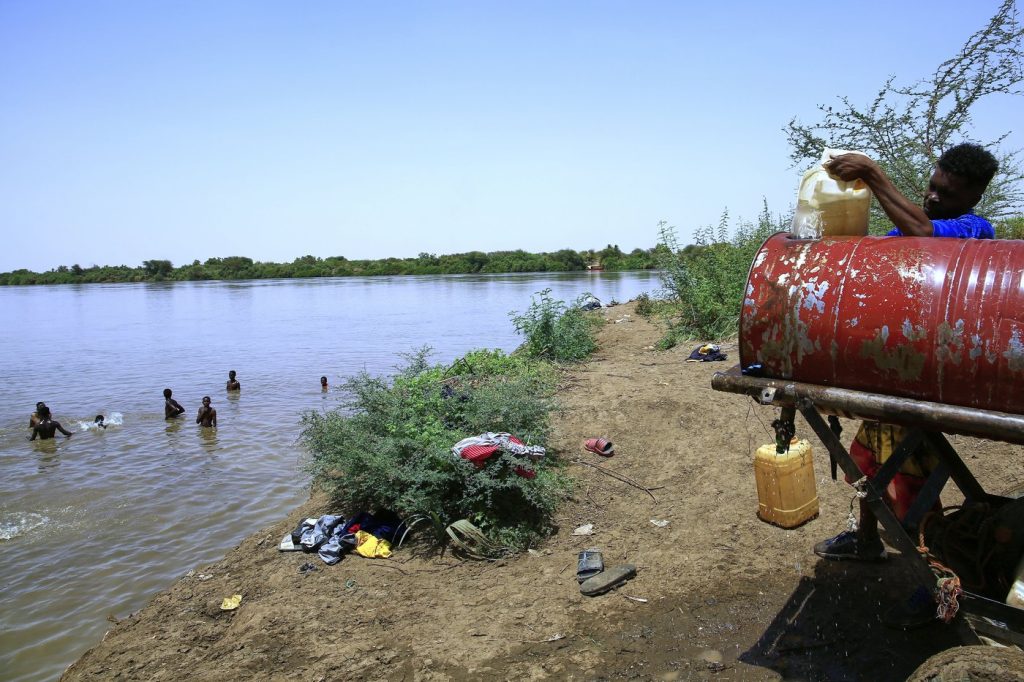CAIRO (AP) – A fast-spreading cholera outbreak has hit Sudan, claiming the lives of 172 individuals and causing illness in over 2,500 others within just one week. The outbreak is primarily centered around Khartoum and has coincided with the return of many Sudanese who were displaced due to the ongoing civil war.
The disease has proliferated as displaced individuals resettle in the capital and neighboring Omdurman, where access to clean water is severely limited. The collapse of health and sanitation infrastructure, exacerbated by prolonged conflict, has made the situation more perilous. The cholera outbreak is the latest disaster to afflict Sudan amid a two-year civil war that has triggered one of the world's worst humanitarian crises.
Recent reports indicate a dramatic increase in cholera cases. According to UNICEF, the number of reported cases surged from 90 daily to 815 between May 15-25. Since the beginning of 2023, over 7,700 people have been diagnosed with cholera, including more than 1,000 children under the age of four. While most cases are concentrated in Khartoum and Omdurman, the disease has also been detected in five surrounding provinces, as reported by the Sudanese Health Ministry.
Joyce Bakker, coordinator for Doctors Without Borders in Sudan, stated that treatment centers in Omdurman are overwhelmed with patients, describing the scenes as “disturbing.” Many patients are arriving too late for treatment, and Bakker emphasized the lack of resources, highlighting that the full scope of the outbreak remains unknown.
The cholera outbreak is driven by a range of factors resulting from the ongoing civil war. Khartoum and Omdurman experienced intense fighting that disrupted communities and damaged infrastructure. Following the military's recapture of the capital from the paramilitary Rapid Support Forces in late March, approximately 34,000 individuals have returned home to find their properties destroyed and the availability of clean water compromised. Attacks on power plants have further exacerbated water shortages, with many residents resorting to drinking contaminated water stored in unsanitary conditions.
Health workers express concern regarding the rapid potential spread of the outbreak. With significant populations congregated in displacement centers, isolating infected individuals poses a challenge. The Sudanese health system has nearly collapsed, with over 80% of hospitals out of service. Those still operational are facing critical shortages of water, electricity, and essential medications.
Cholera is defined by the World Health Organization as a "disease of poverty," primarily spreading in areas with inadequate sanitation and a lack of access to clean water. It is caused by ingestion of food or water contaminated with the bacterium Vibrio cholerae. While treatable with rehydration solutions and antibiotics, severe cases can be fatal within hours if not addressed promptly.
The ongoing civil war has devastated Sudan since April 2023, resulting in more than 24,000 reported deaths and over 14 million people displaced. Famine has been declared in multiple locations, particularly in the beleaguered Darfur region, further deepening the humanitarian crisis as floods annually wreak havoc on the nation's infrastructure.
Cholera outbreaks in Sudan are not unprecedented. A notable outbreak in 2017 led to at least 700 deaths and 22,000 illnesses in a short span. The ongoing conflict has catalyzed recurrent outbreaks, with significant cholera cases reported in recent months. Other diseases, such as dengue fever and meningitis, have also surfaced and contributed to the toll on public health.










